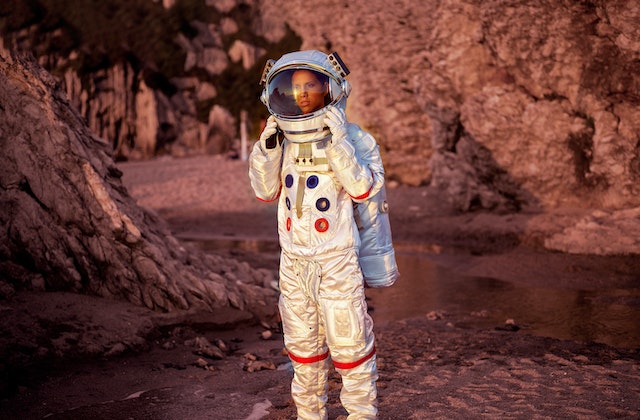Lunar Blues: The Problems of Living in a Moon Colony

Photo by murat esibatir
While living in a moon colony sounds plausible, as is described in Moon Luck by Scott Harral, there are issues people will have to face because of physiology.
Humanity can trace their origins back to many spots in the continent of Africa before they spread across the face of the Earth, becoming the apex species and essentially dominating the food chain. This is not an exaggeration; some of the most inhospitable places on Earth, like the Sahara Desert, the heights of Everest, and many others, have been inhabited by humans—there’s even a permanent settlement in Antarctica, which is considered to be one of the coldest areas on Earth. Such is the spirit of exploration that exists in the collective consciousness of humanity.
The Next Frontier: Space
With this in mind, there is now a question of where the next frontier is—and all answers seem to lead to outer space, which is the principal setting of most science fiction stories. This is not without standing. Humans have already developed the tech necessary to transport other humans off of Earth, and there have already been unmanned missions to other planets within and without the solar system. Yet, while a lot has been happening, there are only a few dozen active astronauts, and actually establishing proper human settlements is only still a theoretical dream.
The Possibility of a Moon Colony
While manned operations to space are seen as wonderful voyages akin to sailing on a ship, the reality is far more dangerous. Extended stays outside of Earth, the place where humans evolved to accommodate themselves, can bring many challenges; a lot is already known, and a far larger number are unknown. Therefore, learning how to live in the conditions of space is important to know before humanity can ever launch a plausible colonization program on other planets.
The only place that humanity currently has the greatest chance of colonizing is its closest celestial neighbor, the moon.
Human Physiology and the Lunar Environment
Living on the moon sounds like a dream come true for a lot of people, but that is because they have not considered what problems may arise when human beings are taken out of their natural habitats and pushed to alien environments. Living in a moon colony sounds plausible, as is described in Moon Luck by Scott Harral, but there are issues people will have to face because of their natural physiology. That is because the atmosphere and the geology of the moon are quite harsh and entirely different than what is present on Earth. For starters, there is no water on the moon, and there is no working atmosphere.
Here are the most pressing issues people will face when living on the moon:
The Strength of Gravity. On Earth, if you fall down, you are pulled down by the gravitation pull of the Earth. But on the surface of the moon, gravitational forces are only a sixth compared to that of Earth. This means that if there is to be a working moon colony, people have to forcefully adapt themselves to living with a significant reduction of muscle and bone mass.
For the body to properly acclimate to strong gravitational forces, the bones, and muscles have to strengthen themselves simply to keep humans standing upright—without this natural pressure, the bones and the muscle quickly weaken and, as a result, humans living in a moon colony might begin to shrink, which leads to the prevalence of osteoporosis, a disease that makes bones fragile and vulnerable to breakage.
Radiation Exposure. Although the atmosphere of the Earth has seen better days compared to the moon’s, it is simply a highly advanced filtration system that sifts the more harmful effects of the sun’s radiation, allowing the planet to safely take in the sun’s rays. The moon, on the other hand, has little to no atmosphere. This means that its ability to protect people from the sun is non-existent, which will lead to higher rates of skin cancer and other diseases for people living in a moon colony.
Circadian Rhythm. Because humans evolved on Earth, they are more attuned to the day and night cycles there. But for people living on the moon, their circadian rhythms are greatly disrupted. This is because a day on Earth lasts 24 hours while a day on the moon lasts for almost 720 hours.

